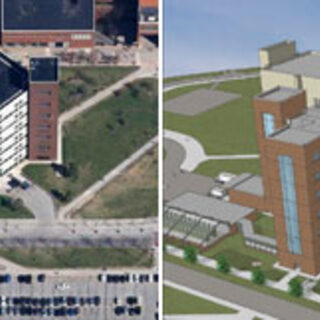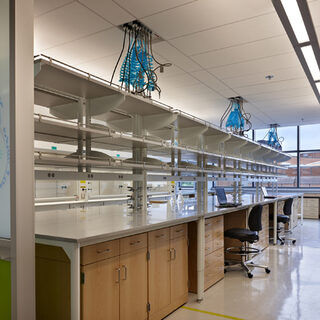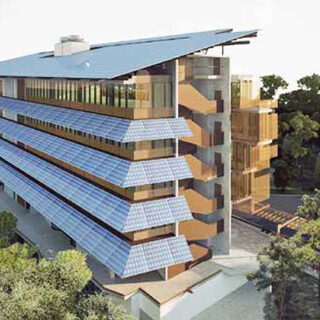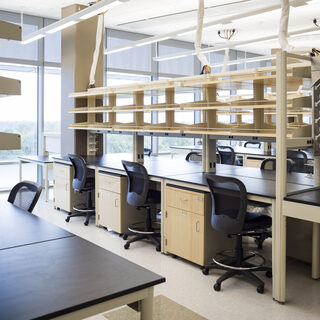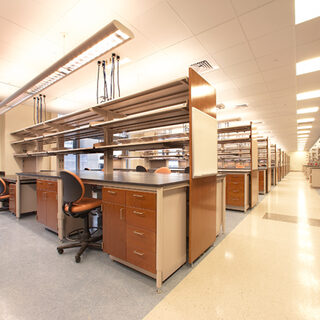Tradeline's industry reports are a must-read resource for those involved in facilities planning and management. Reports include management case studies, current and in-depth project profiles, and editorials on the latest facilities management issues.
Latest Reports
Renovating Aging Academic Science Buildings
Colleges and universities struggling with their aging science facilities face common challenges when they embark on major renovations: compromised infrastructure; mechanical systems that lack the energy efficiency of modern, sustainable designs; and non-compliance with building codes and the Americans with Disabilities Act. In addition, the buildings may be fully or partially occupied, and the budgets are limited. Overcoming these challenges requires careful planning and a well-considered phasing strategy that often includes tackling the major infrastructure improvements up front.
Molecular Engineering & Sciences Building
The Molecular Engineering & Sciences Building at the University of Washington accommodates growth in molecular engineering; responds to the evolving interdisciplinary nature of teaching and research; and fits within an area of campus that is home to revitalized facilities as well as traditional campus architecture.
Self-Powered Zero-Emission Education and Research Building Sets New Benchmark for Sustainability
Australia's Griffith University is nearing completion of the world's first zero-emission teaching and research facility powered entirely by photovoltaic solar energy and stored hydrogen. In addition to being a practical demonstration of innovative energy technologies, the $40 million Sir Samuel Griffith Centre will serve as a campus cornerstone and collaborative social hub that integrates business, engineering, and environmental science disciplines around the core issues of sustainability.
UF Research and Academic Center at Lake Nona
The UF Research and Academic Center at Lake Nona is a four-story, 100,000-gsf research, academic, and conferencing facility which enables the University of Florida to continue its mission at the Lake Nona Medical City in Orlando, Fla.
Translational Biomedical Research Building
The Translational and Biomedical Research Center for the Medical College of Wisconsin (MCW) and the Children's Research Institute (CRI) provide a technically sophisticated facility that supports a broad range of research projects and protocols. The contemporary design enables MCW to expand its research environment, recruit researchers, and secure additional grant money. In addition, the lab building elevates CRI's national leadership profile in pediatric healthcare as it recruits top talent and conducts treatment and diagnostic research.

